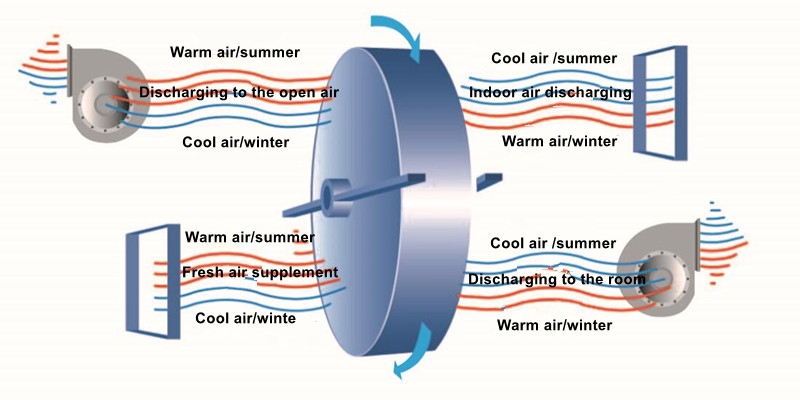
The Difference Between Heat Exchanger and Total Heat Exchanger: A Perfect Balance of Air Quality and Energy Efficiency
2023-10-24 | Heat Exchanger
In modern construction and industrial applications, heat exchangers and total heat exchangers play crucial roles in helping us deal with outdoor air pollution and providing a fresh indoor environment. Despite their similar names, they have significant differences in functionality and applications. In this article, we will explore the distinctions between heat exchangers and total heat exchangers and how they each operate effectively.
1. Heat Exchanger:
A heat exchanger is a device capable of exchanging thermal energy between indoor and outdoor environments. Its primary function is to exchange thermal energy between the fresh outdoor air and indoor air through flowing fluids. This helps maintain the indoor air temperature while filtering out outdoor pollutants, providing clean air indoors.
2. Total Heat Exchanger:
In addition to exchanging thermal energy, a total heat exchanger can also exchange humidity. This means that between indoor and outdoor environments, it can balance not only the temperature but also maintain an appropriate humidity level, ensuring indoor air comfort. It is particularly suitable for situations where heating is required during winter while maintaining indoor humidity or achieving air conditioning effects while keeping indoor air dry in the summer.

3. Key Differences:
Scope of Thermal Exchange: Heat exchangers primarily exchange thermal energy, whereas total heat exchangers exchange both thermal energy and humidity.
Applicability: Heat exchangers are suitable for scenarios requiring adjustment of indoor and outdoor temperatures, while total heat exchangers are applicable in situations where both indoor and outdoor temperature and humidity need to be regulated simultaneously.
Effectiveness: Total heat exchangers not only provide comfortable air but also save energy, ensuring higher air quality and adapting to a wider range of climate variations.
Conclusion:
In summary, both heat exchangers and total heat exchangers play vital roles in improving indoor air quality and conserving energy. The choice of equipment should be based on specific needs. Regardless of the selection, they will help us achieve a perfect balance between indoor and outdoor air, providing a healthier and more comfortable living and working environment.